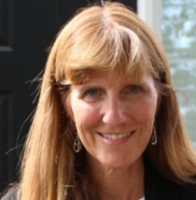
27 Jul Can We Learn From Advice We Would Give Our Younger Selves?
MedicalResearch.com Interview with:

Dr. Kowalski
Robin Kowalski, Ph.D.
Centennial Professor, Clemson University
Department of Psychology
Clemson University
Clemson, SC 29634
MedicalResearch.com: What is the background for this study? What are the main findings?
Response: These two studies stemmed from an idea that I had been mulling over for a couple of years. We are so quick to offer advice to others and to seek advice from others, but what about the advice we would offer to ourselves, particularly our younger selves.
As it turns out, we have plenty of advice to offer to our younger selves. There wasn’t a single participant in our research who found it impossible to generate advice for their younger self and a third of participants spontaneously think about this advice at least once a week. Although the advice that people offered their younger self fell into a number of different categories, the three most common were relationships (e.g., don’t let her go), education (e.g., finish school), and the self (e.g., you are worthy). Following the advice was important.
Approximately two-thirds of respondents said they followed the advice they offered their younger self. Those who did thought their younger self would view them most positively now than those who did not follow the advice.
People also said following the advice brought them closer to their ideal selves (the person they ideally wanted to be). The advice that people offered was more often than not tied to a pivotal event that had occurred in their life. Some of these pivotal events were negative and some were positive. Not surprisingly, regret was more often tied to negative than positive pivotal events, and this regret was just as often tied to actions (things people had done) as inactions (things they had not done).
MedicalResearch.com: What should readers take away from your report?
Response: While people should not wallow in the past, it’s important to think about the advice we would offer our younger selves. It allows us to take stock of what we have accomplished or not, and to set goals for the future.
Even if the advice reflects something that we cannot change for ourselves (e.g., one advice giver said don’t have a child at 16), we can subsequently share that advice with others.
MedicalResearch.com: What recommendations do you have for future research as a result of this work?
Response: Because this is a novel area of research, there is so much that can be done. For example, we would like to look at age differences in the advice that is offered to one’s younger self. Is there a difference in the quantity and quality (category) of advice that is offered by a 40 year old vs. an 80 year old? We would also like to examine personality correlates of the advice as well as implications of the advice and following the advice for physical and psychological health.
MedicalResearch.com: Is there anything else you would like to add?
Response: Just that it’s a great exercise for people to engage in. I have a friend who uses this approach in therapy with her clients. Clients can reflect on their younger self as a means of seeing the role that, for example, childhood trauma has in influencing the person they are now, but they can also offer advice to that younger self from the position of wisdom and power that they are now.
No disclosures.
Citation:
Robin M. Kowalski & Annie McCord (2019) If I knew then what I know now: Advice to my younger self,The Journal of Social Psychology, DOI: 10.1080/00224545.2019.1609401
[wysija_form id=”3″]
[last-modified]
The information on MedicalResearch.com is provided for educational purposes only, and is in no way intended to diagnose, cure, or treat any medical or other condition. Always seek the advice of your physician or other qualified health and ask your doctor any questions you may have regarding a medical condition. In addition to all other limitations and disclaimers in this agreement, service provider and its third party providers disclaim any liability or loss in connection with the content provided on this website.
Last Updated on July 27, 2019 by Marie Benz MD FAAD
